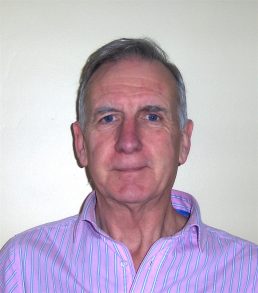
Tony Penston, author of A Concise Grammar for English Language Teachers, was kind enough to take some time out to speak with us. Here follows our questions and his answers!
Why did you decide to write the Concise Grammar for English Language Teachers?
I had already produced A Grammar Course for TEFL Certificate, which had gone out of print, so it was time for a new edition, with a new title. I was teacher training in Dublin at that time and found there was no grammar book dedicated or concise enough, or affordable enough, for trainees on a certificate course.
To achieve conciseness the following guidelines were adhered to:
- Points of grammar which rarely surface in a normal lesson or which teachers can handle in layman’s terms are omitted.
- Examples of and comment on learner errors are kept to a bare minimum (I’ve always held that this topic is overemphasized on training courses).
- Pronunciation and vocabulary aspects are kept to a bare minimum (online dictionaries suffice).
- Exercises are minimal and of a formative nature (teacher trainees are normally highly motivated and don’t need exercises which can be found in student books).
The reader’s needs and preferences were also taken into account in the following ways:
- There is no academic waffle. Teachers want to know what’s needed in the classroom, not the lecture hall.
- The fact that many teachers learn a lot by using coursebooks was exploited rather than ignored; numerous extracts from these were included, thereby exemplifying how items were widely taught and practised.
In comparison to your book, there are a number of thick teacher’s grammar books (that get into all sorts of nitty gritty in the English Language) out there that are used in many TESOL programs. Would you say that your book is an alternative to such books or a complement?
I’ve seen trainees with grammar tomes who wouldn’t have the time on their intensive course to cover a fraction of their content. I feel there is a need for candour on the part of course directors regarding set books; to assign books that will not dishearten enrollees. To answer your question, I would say that my book is a complement to the more comprehensive books, but obviously mine should be used before the latter, to allow time for the experienced teacher to reach the stage where they are equipped for the nitty gritty. Mine also fits snugly beside the coursebook, as a comfort blanket for new teachers!
Some argue that students and teachers alike are overly preoccupied with grammar. What would you say to this?
I have found nearly all native speaker TEFL enrollees to express a fear and ignorance of grammar, as if this were what teaching English was all about. When I’m teaching I tend almost to ignore grammar, but then my students often call me to task, wanting some nuts and bolts. Another point is that coursebooks tend to follow a grammar syllabus, covertly or not, and teachers need to be prepared for their approach and terminology. It’s a difficult one – I’m all for communicative language teaching, but grammar comes a damned close second, with the caveat of knowing how and when not to teach it, of course.
Not only are you the author of this book, but you are also the publisher. Why did you decide to do this?
It is difficult to get the attention of the major ELT publishers so I self-published, convinced of the need for the product. I enjoyed the publishing so much (there are no editors telling you what you can’t say, and you can organize the layout however you want) that I decided to continue in that manner for the new edition. My father was a shopkeeper, I guess some aspect of that business is in my blood!
Biodata
Tony Penston (TCL DipTESOL, M.Phil Applied Linguistics) has been a teacher and teacher trainer at home and abroad for over 40 years. Lately he is devoting the majority of his time to writing and consultancy. His EFL interests are varied, reflected in his three books on grammar, phonetics and Irish history, though these evince his overriding interest in methodology.

